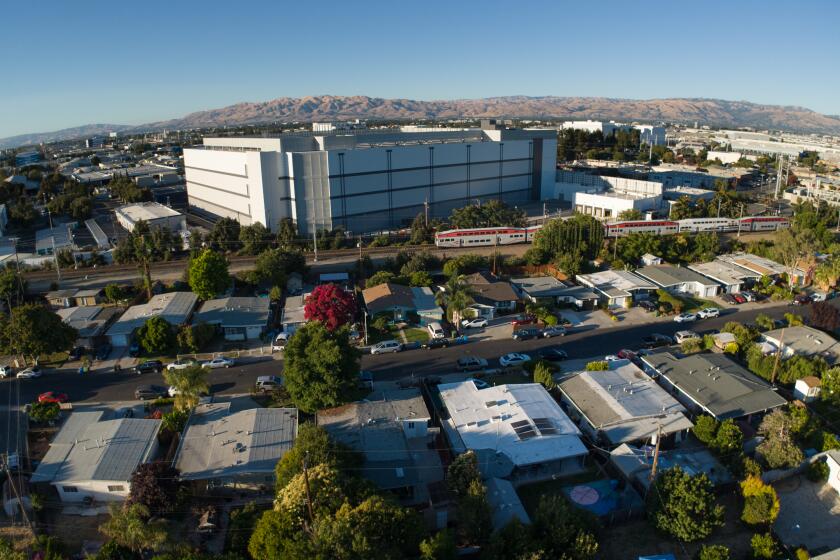
For decades, Robert. F. Kennedy Jr. worked as an environmental lawyer, filing lawsuits against polluters. He helped found a global green group that fought for clean water and helped defeat dam projects in Chile and Peru.
Yet even before he announced Friday that he was suspending his presidential campaign and supporting former President Trump, Kennedy had repeatedly disappointed and angered dozens of environmentalists, who said he had abandoned his green roots.
“It’s a shock to me knowing the Bobby I used to know,” said Dan Reicher, senior scholar at Stanford’s Doerr School of Sustainability. “I could not have imagined him supporting former President Trump.”
Gus Walz, the 17-year-old son of Minnesota Gov. Tim Walz, has nonverbal learning disorder. He’s one of millions of American kids with NVLD, which has been described as the opposite of dyslexia.
Reicher, a former U.S. assistant secretary of Energy, once worked with Kennedy at the Natural Resources Defense Council, or NRDC, and spent time kayaking with him on rivers in Chile and the U.S.
He said he had become increasingly dismayed by Kennedy’s campaign positions and statements on the environment. He pointed to how Kennedy had not presented any meaningful plans for cutting greenhouse gases. Instead, Reicher said, he had criticized the size of the hundreds of billions of dollars in subsidies to clean energy projects in President Biden’s Inflation Reduction Act.
“He’s dismissed a lot of what we need to do on climate change,” Reicher said.
Long before he announced last year that he was running for president, Kennedy became known as an environmental advocate for his work in helping to clean up the Hudson River in New York with the group called Riverkeeper.
And up until 2020, he was the president of the Waterkeeper Alliance, an environmental group he helped found to fight for clean water around the world.
While that background would seem to put Kennedy at odds with Trump, who has called climate change a “hoax” and overturned numerous environmental rules, some activists grew increasingly concerned about his candidacy in recent months as he questioned Biden’s policies. Some point to his post on X where he said, “Climate change is being used to control us through fear.”
In April, dozens of Kennedy’s former colleagues at NRDC, where he worked for nearly three decades, paid for advertisements in swing states, calling for him to “honor our planet” by dropping out of the race.
“In nothing more than a vanity candidacy, RFK Jr. has chosen to play the role of election spoiler to the benefit of Donald Trump — the single worst environmental president our country has ever had,” the ad read.
That same month, a dozen green groups, including the Sierra Club and Earthjustice, signed a letter calling on Americans to vote against Kennedy.
“We can’t, in good conscience, let him continue co-opting the credibility and successes of our movement for his own personal benefit,” the groups wrote.
Experts warn that a frenzy of data center construction could delay California’s transition away from fossil fuels, raise electric bills and increase risk of blackouts
In some cases, Kennedy had spoken of policies that went further than those of Biden. For example, he had aligned himself with many climate activists in his call to end American exports of liquefied natural gas. The Biden administration said early this year that it was pausing approvals of new gas export terminals while it studied the economic and climate impacts of the exports.
Kennedy told Politico that he did not want an export ban for environmental reasons, but rather to protect U.S. gas reserves from being depleted.
In that interview, Kennedy also said he wanted to roll back part of the Inflation Reduction Act that funded carbon capture projects, which are favored by the fossil fuel industry. He said he believed that Biden had been manipulated by oil companies.
“He’s played into the hands of the carbon industry by focusing on geoengineering and carbon capture, and that is to me a disastrous endpoint,” Kennedy said. “And it’s disastrous from an environmental point of view, and it also is just a subsidy for Big Carbon.”
Toward a more sustainable California
Get Boiling Point, our newsletter exploring climate change, energy and the environment, and become part of the conversation — and the solution.
You may occasionally receive promotional content from the Los Angeles Times.









